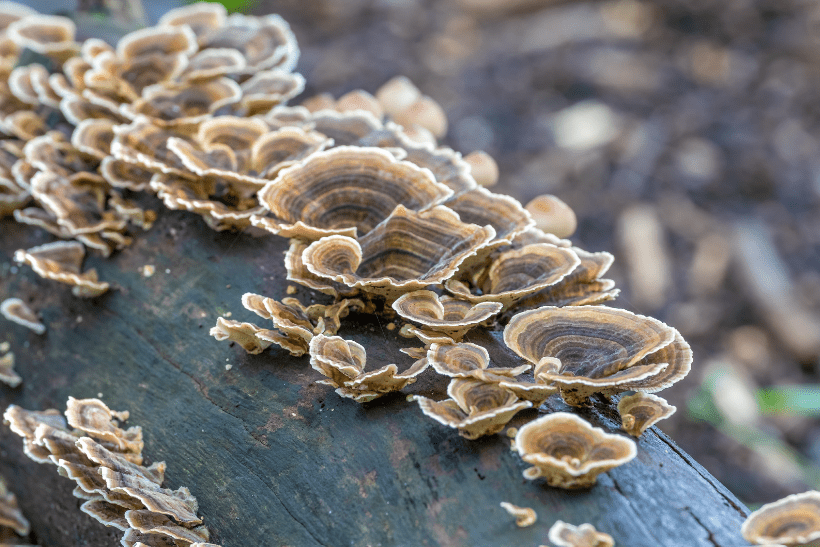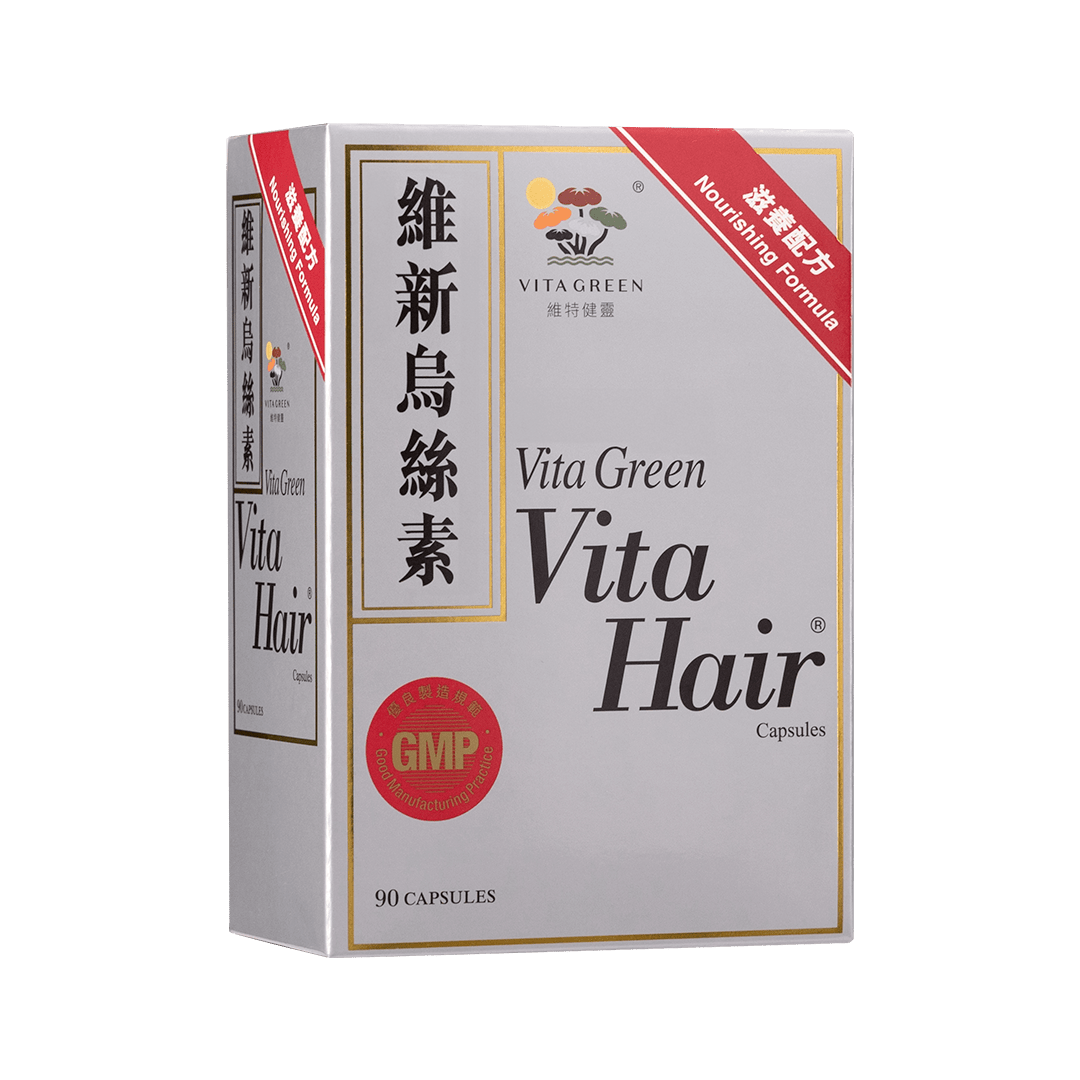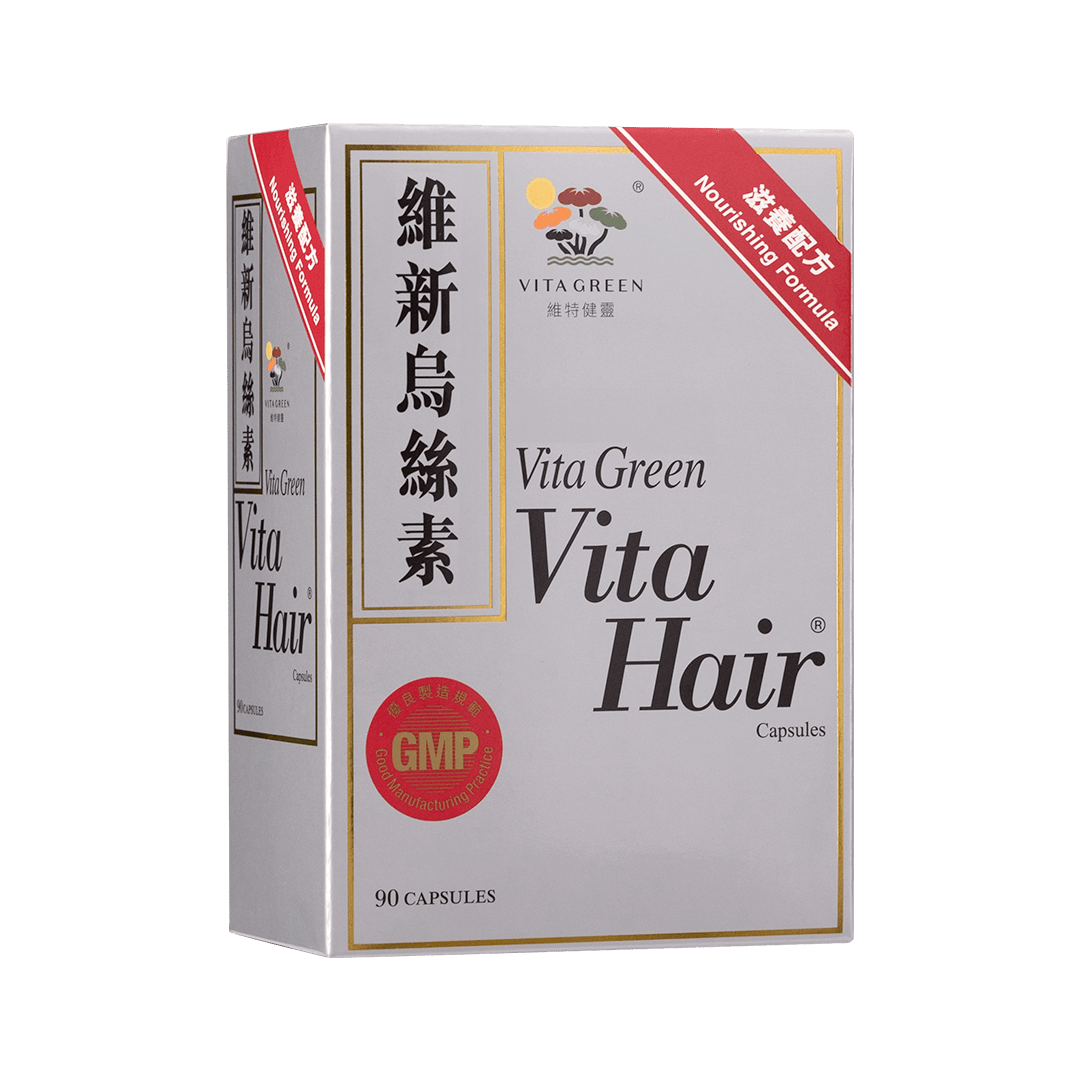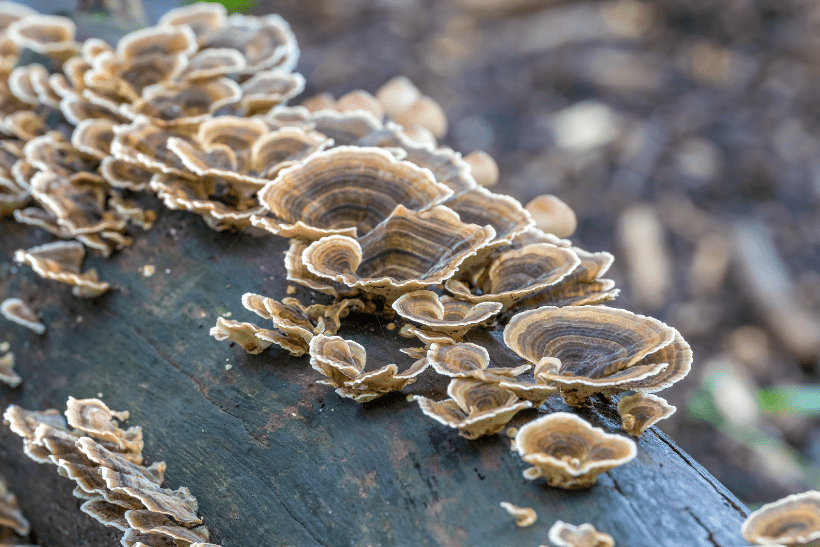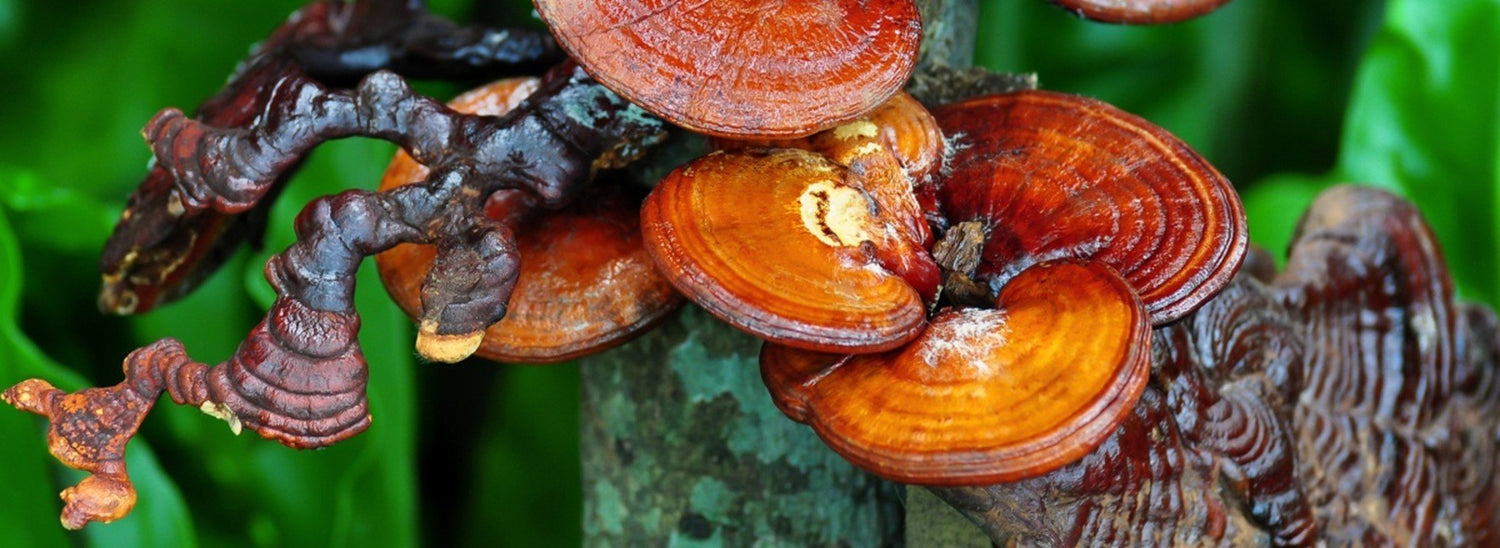Nowadays, everyone seeks for different ways to enhance and support overall health, the remarkable powers of natural remedies are becoming increasingly popular. One such natural wonder is the Turkey Tail mushroom, scientifically known as Trametes Versicolor. This fascinating fungus, often underestimated, has gained prominence for its potential to support the immune system. In this blog, we'll explore the myriad benefits of Turkey Tail and delve into its history, components, research-backed effects on immunity, and how it fits into a holistic approach to health.
History and Origin of Turkey Tail
Turkey Tail mushrooms, with their vibrant and colorful fan-shaped caps, have been used in traditional medicine for centuries and they've been revered for their potential health benefits. Indigenous cultures around the world have also recognized the therapeutic properties of this unique fungus.
The name "Turkey Tail" comes from the mushroom's resemblance to the tail feathers of a wild turkey. It's a common sight in forests across North America, Europe, and Asia, where it grows as a parasitic or saprophytic fungus on dead or decaying wood. With a history steeped in medicinal use, Turkey Tail's modern resurgence is a testament to its potential as an immune-boosting superfood.

Nutritional Composition of Turkey Tail
To understand how Turkey Tail supports the immune system, it's essential to delve into its nutritional composition. These mushrooms contain an array of bioactive compounds, making them a nutritional powerhouse:
- Polysaccharides: Turkey Tail is rich in polysaccharides, specifically beta-glucans. These compounds are known for their immunomodulatory effects, stimulating the immune system to respond more effectively to pathogens.
- Proteins: Turkey Tail mushrooms contain various proteins, including lectins and fungal immunomodulatory proteins. These can help modulate the immune response, enhancing its ability to defend against infections.
- Minerals: Essential minerals like selenium, copper, and zinc are present in Turkey Tail, which play vital roles in immune function and overall health.
- Vitamins: It also contains vitamins like vitamin D, which is essential for immune health.

- Phenolic Compounds: Phenolic compounds in Turkey Tail mushrooms possess antioxidant properties, protecting the body from oxidative stress and inflammation.
Turkey Tail and the Immune System
Research suggests that Turkey Tail mushrooms may offer several potential benefits for the immune system:
- Enhanced Immune Response: One of the most well-known and studied benefits of Turkey Tail mushrooms is their immunomodulatory effect. The beta-glucans in Turkey Tail can enhance the activity of various immune cells, including macrophages, T cells, and natural killer (NK) cells. This boosts the body's ability to combat infections and diseases.

- Antioxidant Properties: The phenolic compounds in Turkey Tail mushrooms help neutralize harmful free radicals in the body. By reducing oxidative stress and inflammation, these compounds indirectly support the immune system, which operates optimally in a low-stress environment.
- Anti-Inflammatory Effects: Chronic inflammation can weaken the immune system. Turkey Tail mushrooms contain bioactive compounds that have been shown to reduce inflammation, further promoting overall immune health.
- Antiviral and Antibacterial Properties: Some studies suggest that Turkey Tail mushrooms have antiviral and antibacterial properties, making them a potential natural defense against common pathogens.
- Modulation of Gut Health: A healthy gut is closely linked to a robust immune system. Turkey Tail mushrooms, being prebiotic in nature, can support the growth of beneficial gut bacteria, ultimately promoting immune health.

Scientific Research on Turkey Tail and Immunity
A substantial body of scientific research has explored the potential of Turkey Tail mushrooms to support the immune system. Here are a few notable studies:
- Clinical Trial on Breast Cancer Patients: A double-blind, randomized clinical trial published in the ISRN Oncology journal in 2012 examined the effects of Turkey Tail supplementation on breast cancer patients undergoing chemotherapy. The study found that Turkey Tail improved immune parameters and reduced the recurrence of breast cancer.
- Immunomodulatory Effects: Research published in the International Journal of Medicinal Mushrooms has demonstrated the immunomodulatory effects of Turkey Tail extracts on mice. The study showed increased production of immune cells and improved immune responses.
- Antiviral and Antibacterial Properties: In a 2011 study published in the Biotechnology and Bioengineering journal, Turkey Tail extracts exhibited potent antiviral activity against the influenza virus. Another study in the Journal of Ethnopharmacology explored the antibacterial properties of Turkey Tail against various pathogenic bacteria.
- Immunomodulation in Patients with Chronic Fatigue Syndrome: Research published in the journal Evidence-Based Complementary and Alternative Medicine investigated the impact of Turkey Tail on patients with chronic fatigue syndrome. The study found that Turkey Tail improved immune parameters and reduced fatigue in these patients.

How to Incorporate Turkey Tail into Your Diet
Turkey Tail mushrooms are widely available in various forms. Here's how you can incorporate them into your daily routine:
- Tea: Bravo Tea is a product that highlights the benefits of Turkey Tail in tea form.
- Extracts: Turkey Tail extracts are also available and can be taken directly or added to drinks or recipes. Lifecykel’s Turkey Tail liquid extract is a good source of the mushroom’s benefits.
- Dietary Supplements: Turkey Tail supplements, available in capsule form, are convenient options for daily consumption. One of the best health supplements in the market today is Vita Green Lingzhi which contains Turkey Tail and other types of Reishi mushrooms that provide various health benefits such as being a rich source of antioxidants, supporting cardiovascular health, and of course, improving the immune system.

- Cooking: While not as potent as extracts, incorporating Turkey Tail into soups, stews, and stir-fries can be a flavorful way to enjoy the mushroom's benefits.
While Turkey Tail mushrooms offer promising benefits for immune support, it's essential to remember that a holistic approach to health is crucial. A well-rounded lifestyle that includes a balanced diet, regular exercise, adequate sleep, stress management, and good hygiene is essential for maintaining a robust immune system. Incorporating Turkey Tail mushrooms into your diet can be a valuable addition to your overall wellness strategy, but it should complement, not replace, other healthy habits. By taking a comprehensive approach to your health, you can optimize your immune system's function and enjoy better overall well-being.
The Turkey Tail mushroom, with its rich history in traditional medicine and an impressive body of modern scientific research, is a true marvel of the natural world. Its ability to boost the immune system, fight inflammation, and potentially combat infections makes it a valuable addition to any health-conscious individual's routine. As science continues to explore the benefits of Turkey Tail and other medicinal mushrooms, we may uncover even more benefits that can help with one’s health.
References
- Bains, Aarti, and Prince Chawla. “In Vitro Bioactivity, Antimicrobial and Anti-inflammatory Efficacy of Modified Solvent Evaporation Assisted Trametes Versicolor Extract.” 3 Biotech, vol. 10, no. 9, Springer Science+Business Media, Aug. 2020, https://doi.org/10.1007/s13205-020-02397-w.
- Benson, Kathleen F., et al. “The Mycelium of the Trametes Versicolor (Turkey Tail) Mushroom and Its Fermented Substrate Each Show Potent and Complementary Immune Activating Properties in Vitro.” BMC Complementary and Alternative Medicine, vol. 19, no. 1, BioMed Central, Dec. 2019, https://doi.org/10.1186/s12906-019-2681-7.
- Chen, Rui, et al. “Traditional Chinese Medicine for Chronic Fatigue Syndrome.” Evidence-based Complementary and Alternative Medicine, vol. 7, no. 1, Hindawi Publishing Corporation, Jan. 2010, pp. 3–10. https://doi.org/10.1093/ecam/nen017.
- Habtemariam, Solomon. “Trametes Versicolor (Synn. Coriolus Versicolor) Polysaccharides in Cancer Therapy: Targets and Efficacy.” Biomedicines, vol. 8, no. 5, Multidisciplinary Digital Publishing Institute, May 2020, p. 135. https://doi.org/10.3390/biomedicines8050135.
- Hobbs, Christopher. “Medicinal Value of Turkey Tail Fungus Trametes Versicolor (L.:Fr.) Pilat (Aphyllophoromycetideae). A Literature Review.” International Journal of Medicinal Mushrooms, vol. 6, no. 3, Begell House, Jan. 2004, pp. 195–218. https://doi.org/10.1615/intjmedmushr.v6.i3.10.
- Janjušević, Ljiljana, et al. “The Lignicolous Fungus Trametes Versicolor (L.) Lloyd (1920): A Promising Natural Source of Antiradical and AChE Inhibitory Agents.” Journal of Enzyme Inhibition and Medicinal Chemistry, vol. 32, no. 1, Taylor and Francis, Jan. 2017, pp. 355–62. https://doi.org/10.1080/14756366.2016.1252759.
- Pallav, Kumar, et al. “Effects of Polysaccharopeptide FromTrametes Versicolorand Amoxicillin on the Gut Microbiome of Healthy Volunteers.” Gut Microbes, vol. 5, no. 4, Landes Bioscience, July 2014, pp. 458–67. https://doi.org/10.4161/gmic.29558.
- Sharma, Homa Nath, et al. “Anti-Toxoplasma Gondii Activity of Trametes Versicolor (Turkey Tail) Mushroom Extract.” Scientific Reports, vol. 13, no. 1, Nature Portfolio, May 2023, https://doi.org/10.1038/s41598-023-35676-6.
- Tham, Le Xuam. Study on Selenium Accumulation in Turkey Tail Fungus (Trametes Versicolor) by Using Instrumental Neutron Activation Analysis. 2008, inis.iaea.org/search/search.aspx?orig_q=RN:41094580.
- Torkelson, Carolyn J., et al. “Phase 1 Clinical Trial of Trametes Versicolor in Women With Breast Cancer.” ISRN Oncology (Print), vol. 2012, Hindawi Publishing Corporation, May 2012, pp. 1–7. https://doi.org/10.5402/2012/251632.


